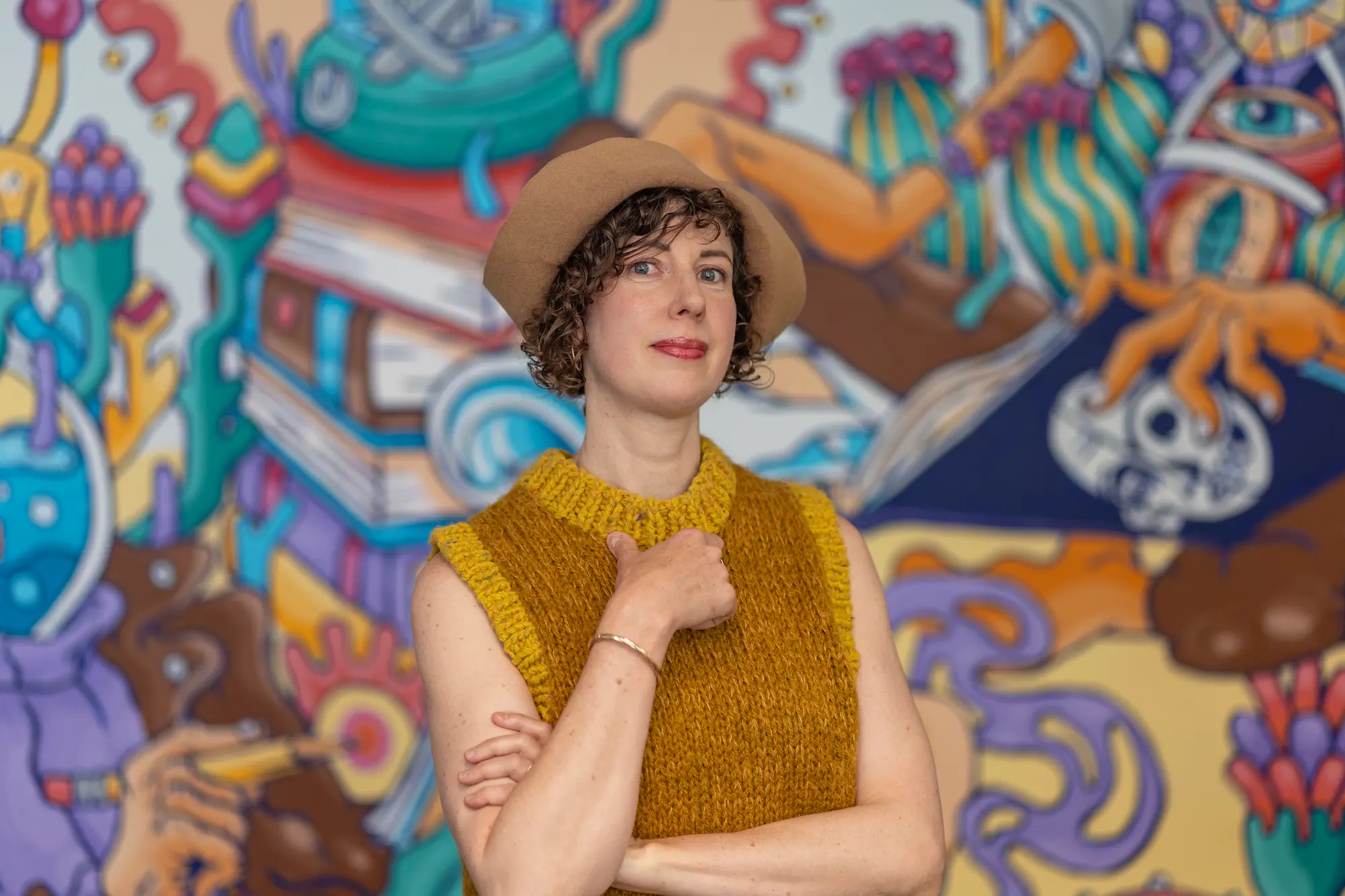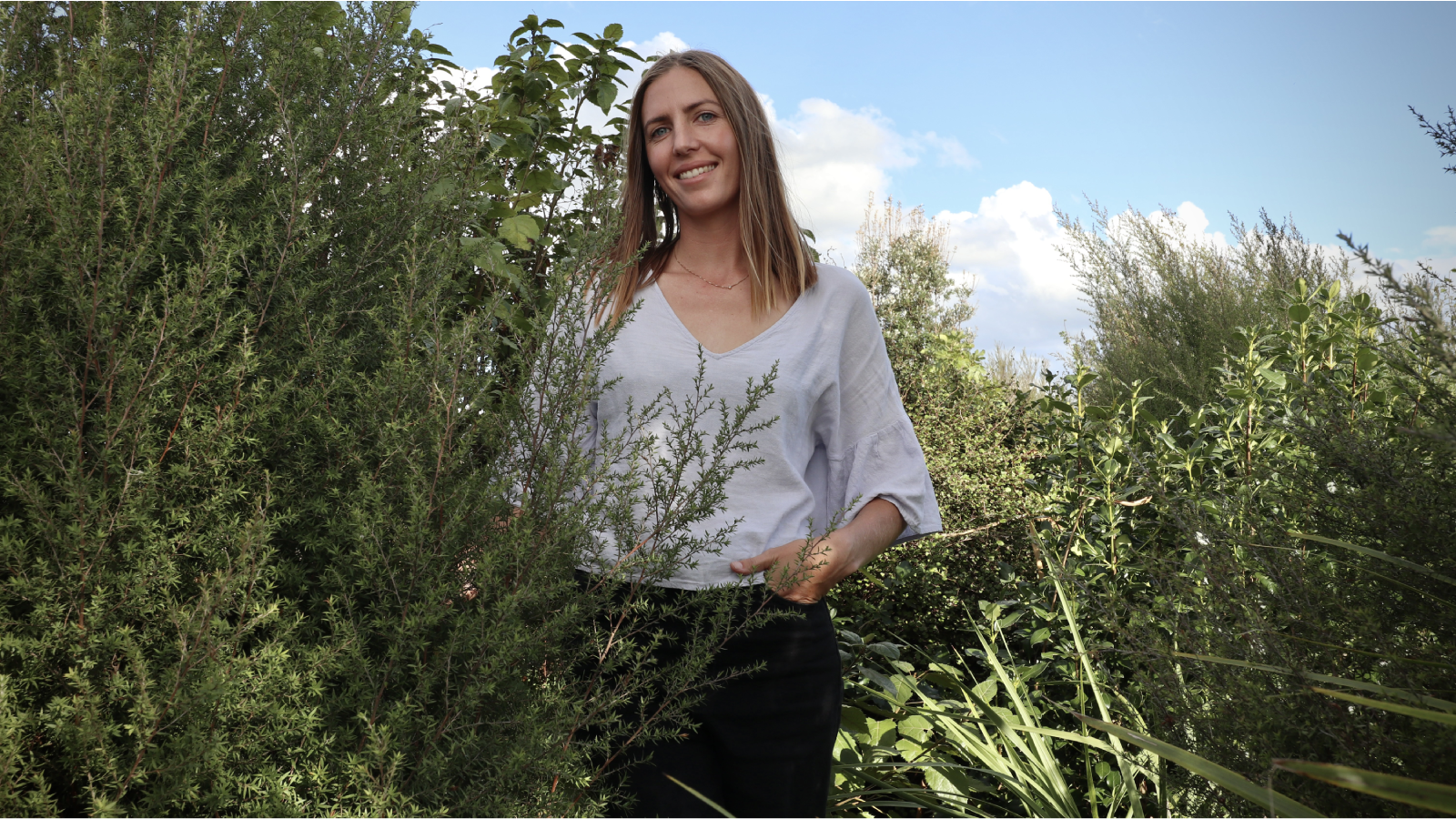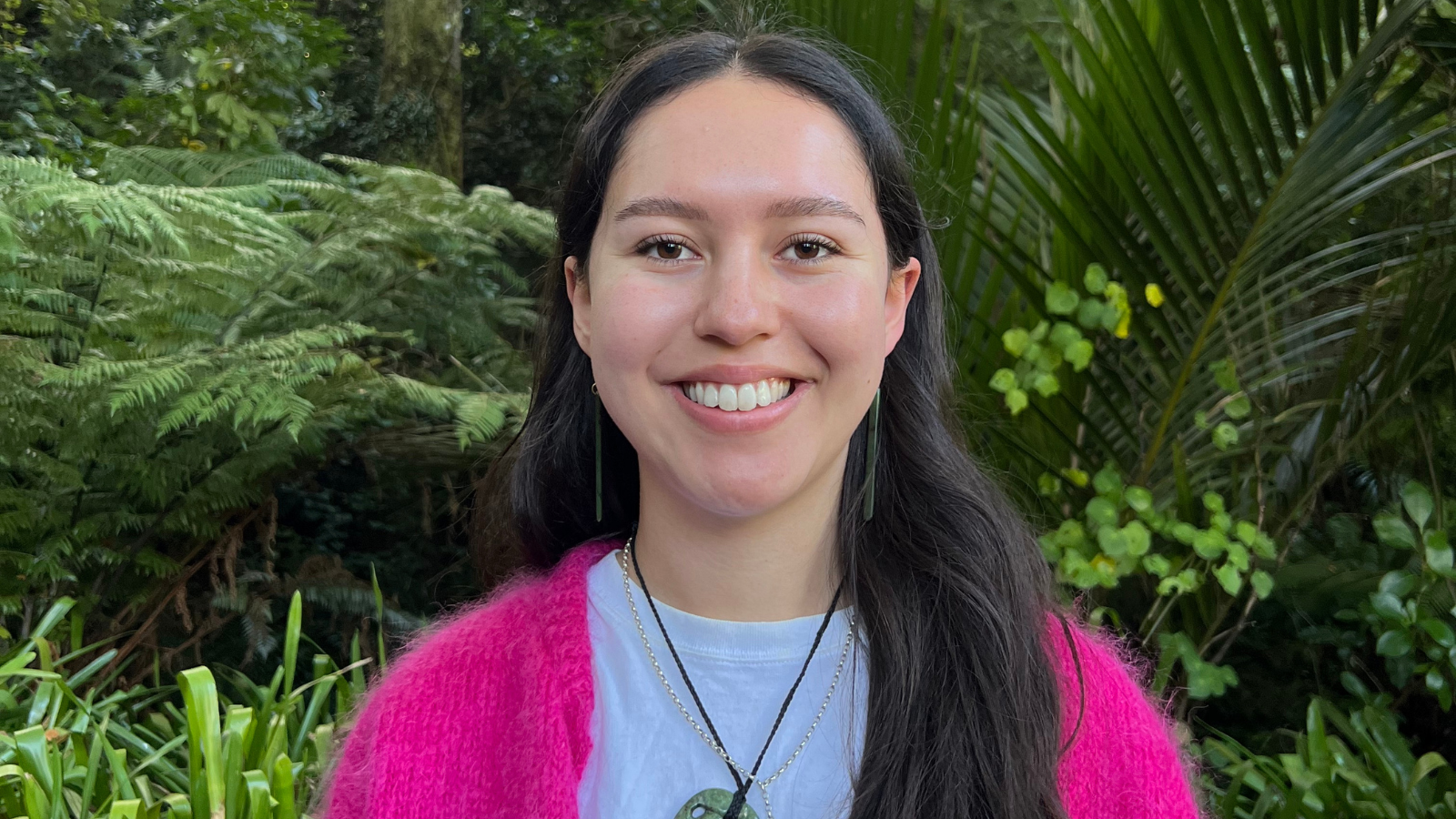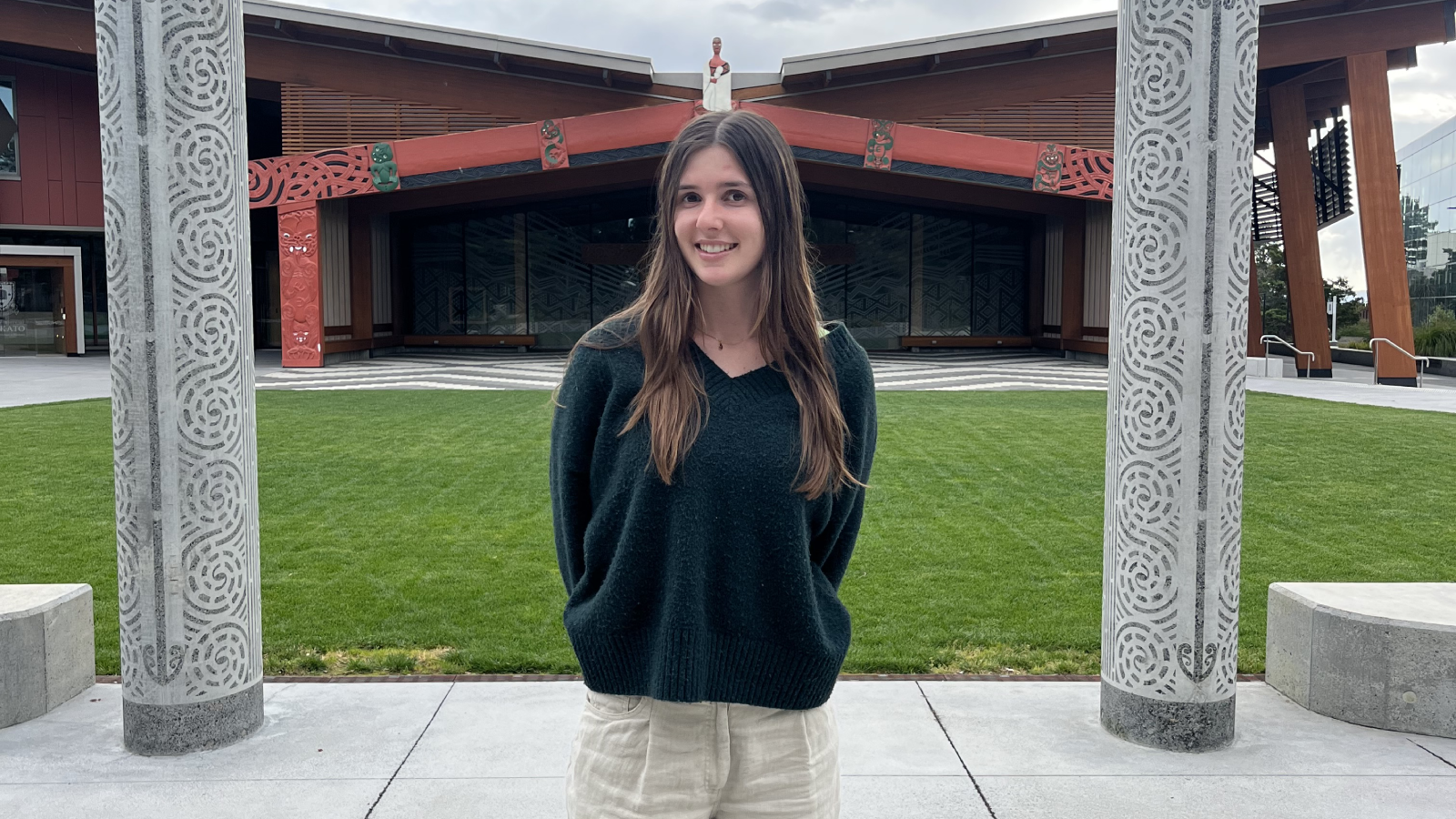The University of Waikato’s newly named Kaipukahu Writer in Residence will spend her time on campus at the intersection of poetry and narrative fiction, writing what she calls ‘a poet’s novel’.
Acclaimed poet and essayist Dr Joan Fleming says she is honoured to bring her work to life as the Writer in Residence.
Her project The Fig Book follows an unnamed protagonist and her new fiancé ‘Bob’ as they navigate a failed love story while housesitting for a wealthy, self-satisfied landscape artist. The protagonist sheds the constraints of human identity and grapples with the cost of care and entanglement with humans and non-humans.
Through a blend of symbolism, personification and a playful tone, the novel reimagines humanity’s connection to their environment, encouraging readers to view pressing challenges through a lens of hope and creativity.
The novel will build upon themes explored in Dr Fleming’s earlier book, Song of Less. “In Song of Less, I focused more on grief and sorrow. This novel, The Fig Book, is more gleeful and irreverent. We could use a lot more silliness in the conversation,” she says.
Dr Fleming holds a PhD in ethnopoetics from Monash University and has lectured in creative writing at Massey University and Victoria University.
Her exploration of ecological relationships draws inspiration from the works of writer Robin Wall Kimmerer and philosophers Val Plumwood and Timothy Morton, whose ideas resonate with her own views on personification and interconnectedness.
“I like Tim Morton’s ideas on personification,” she says. “He explores the idea that we’re designed by objects just as much as they’re designed by us. His idea that ‘Everything’s working on everything’ has a big space in my work.”
Dr Fleming’s narrative style could be likened to claymation – a stop-start storytelling technique that mirrors the compressed and whimsical tone of the novel.
“Poetry often pauses time, it keeps you in a moment, whereas a novel works on cause and effect.”
Dr Fleming’s work is designed to speak for the non-speaking and show the reader a new form of relationship, in a lighthearted attempt to remind them of the harder, more imminent topics of today.
“The Fig Book is designed to open into a sort of ecological fable,” she says.
Catherine Chidgey, Associate Professor in Creative Writing, shared why Fleming was chosen as this year’s Writer in Residence.
“The writing is poetic, funny and completely addictive, and her proposed work promises genre-bending delights that approach urgent issues with the lightest touch,” she says.
“We are thrilled to have Joan on campus this year.”
The Writer in Residence programme at the University of Waikato is one of New Zealand’s most prestigious literary residencies. Established to support talented authors and enrich the local literary community, the programme has hosted some of the country’s most celebrated writers including 2024 Writer in Residence Ben Brown (Ngāti Mahuta, Ngāti Korokī Kahukura, Ngāti Paoa).




